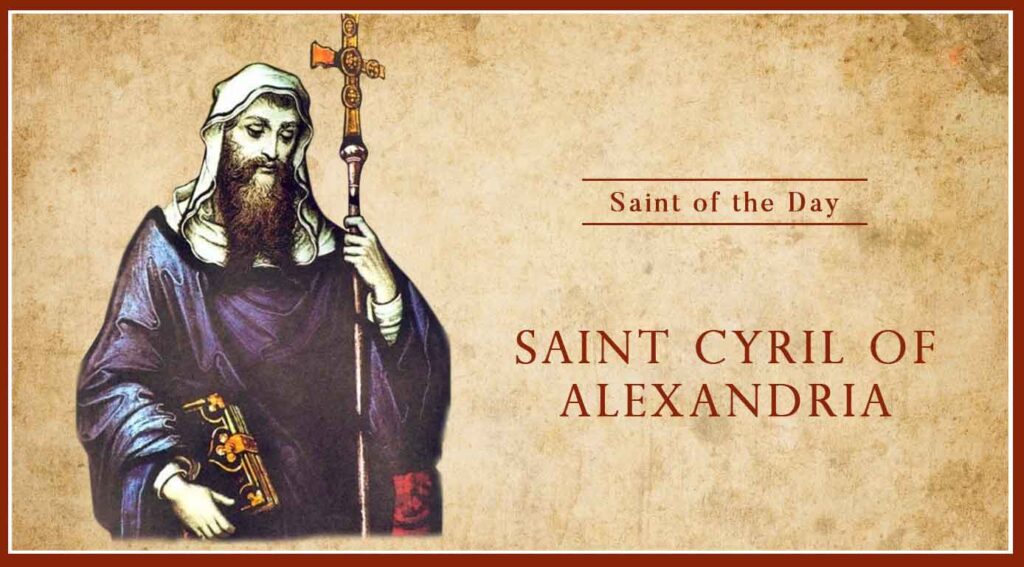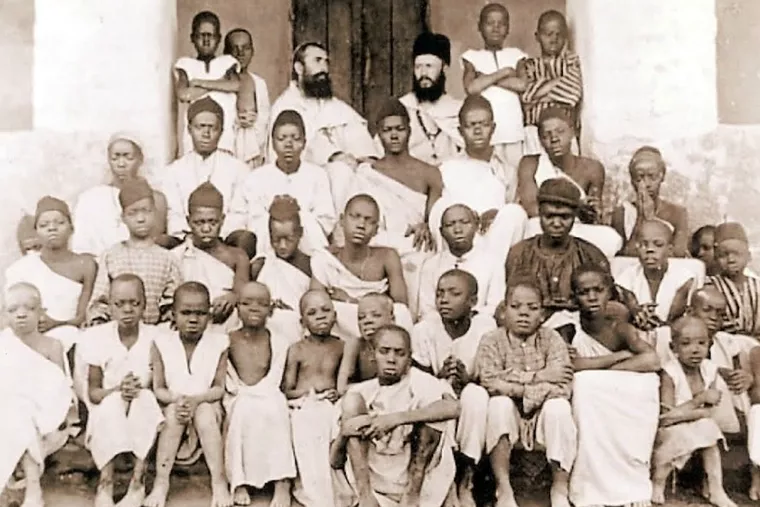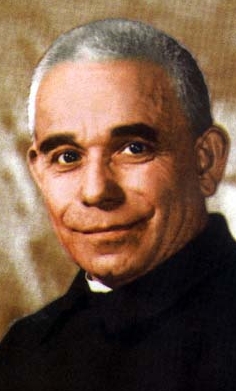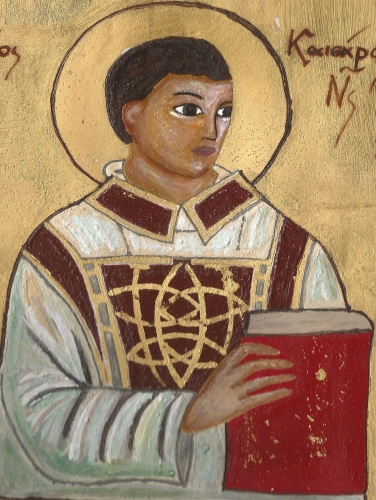Saint Cyril of Alexandria was born circa 376, in the town of Didouseya, Egypt, modern-day El-Mahalla El-Kubra. Little is known for certain about his early life. He received the formal Christian education standard for his day: he studied grammar from age twelve to fourteen (390–392), rhetoric and humanities from fifteen to twenty (393–397) and finally theology and biblical studies (398–402).
Saint Cyril is well known for his dispute with Nestorius and his supporter, Patriarch John of Antioch, whom Cyril excluded from the Council of Ephesus for arriving late. He is also known for his expulsion of Novatians and Jews from Alexandria and for inflaming tensions that led to the murder of the Hellenistic philosopher Hypatia by a Christian mob. Historians disagree over the extent of his responsibility in this.
He tried to oblige the pious Christian emperor Theodosius II (AD 408–450) to himself by dedicating his Paschal table to him. Cyril’s Paschal table was provided with a Metonic basic structure in the form of a 19-year lunar cycle adopted by him around AD 425, which was very different from the first Metonic 19-year lunar cycle invented around AD 260 by Anatolius, but exactly equal to the lunar cycle which had been introduced around AD 412 by Annianus; the Julian equivalent of this Alexandrian cycle adopted by Cyril and nowadays referred to as the ‘classical (Alexandrian) 19-year lunar cycle’ would emerge a century later in Rome as the basic structure of Dionysius Exiguus’ Paschal table (AD 525).
Saint Cyril wrote extensively and was a major player in the Christological controversies of the late-4th and 5th centuries. He is counted among the Church Fathers and also as a Doctor of the Church, and his reputation within the Christian world has resulted in his titles Pillar of Faith and Seal of all the Fathers.








